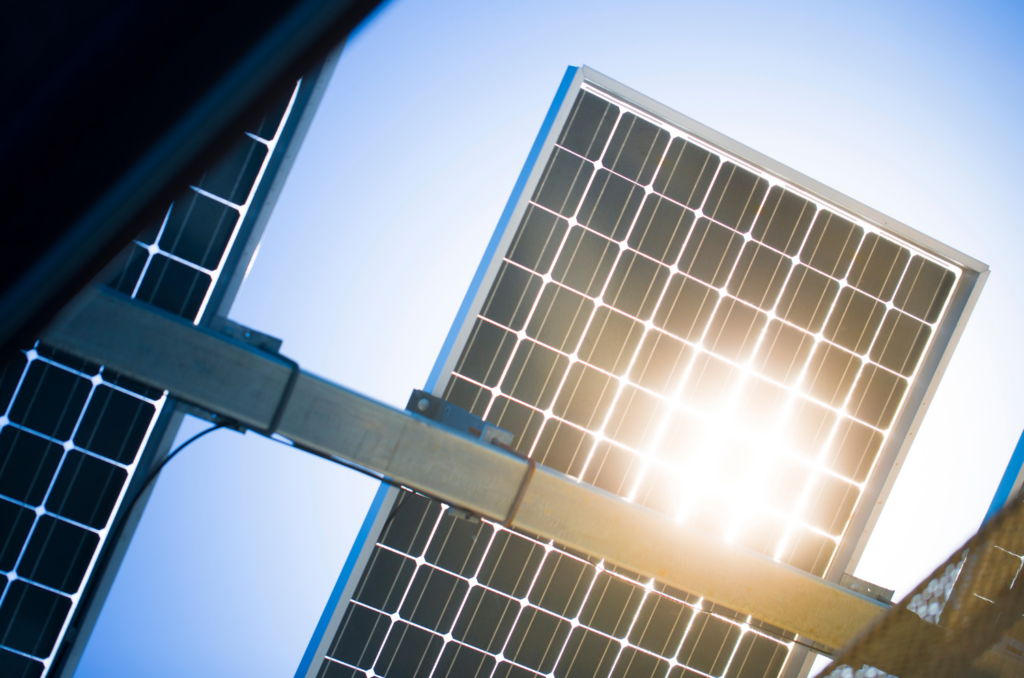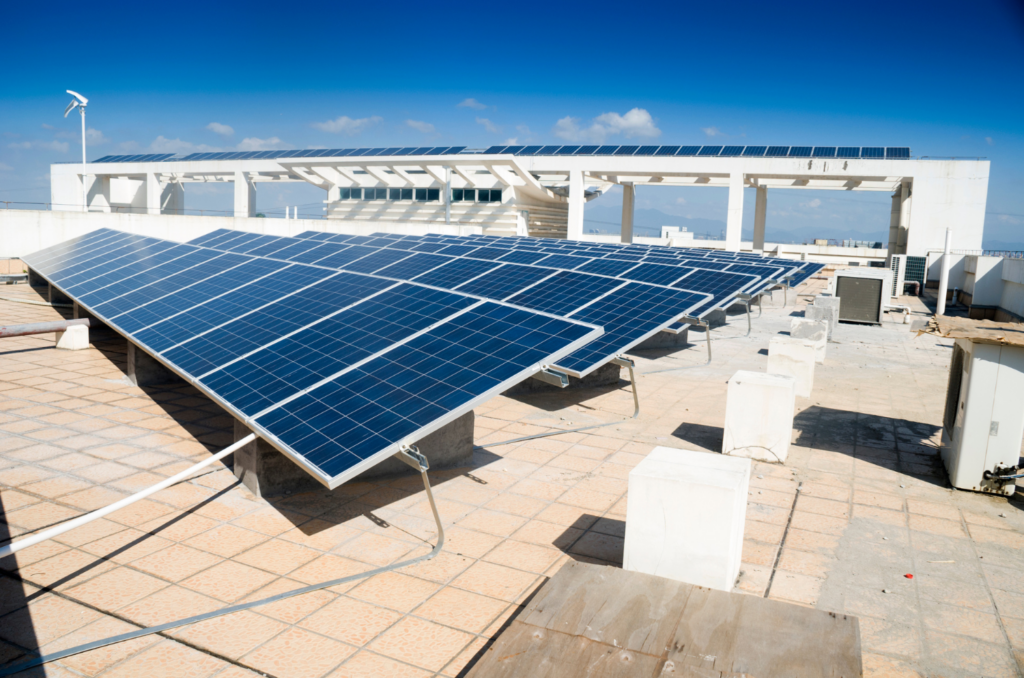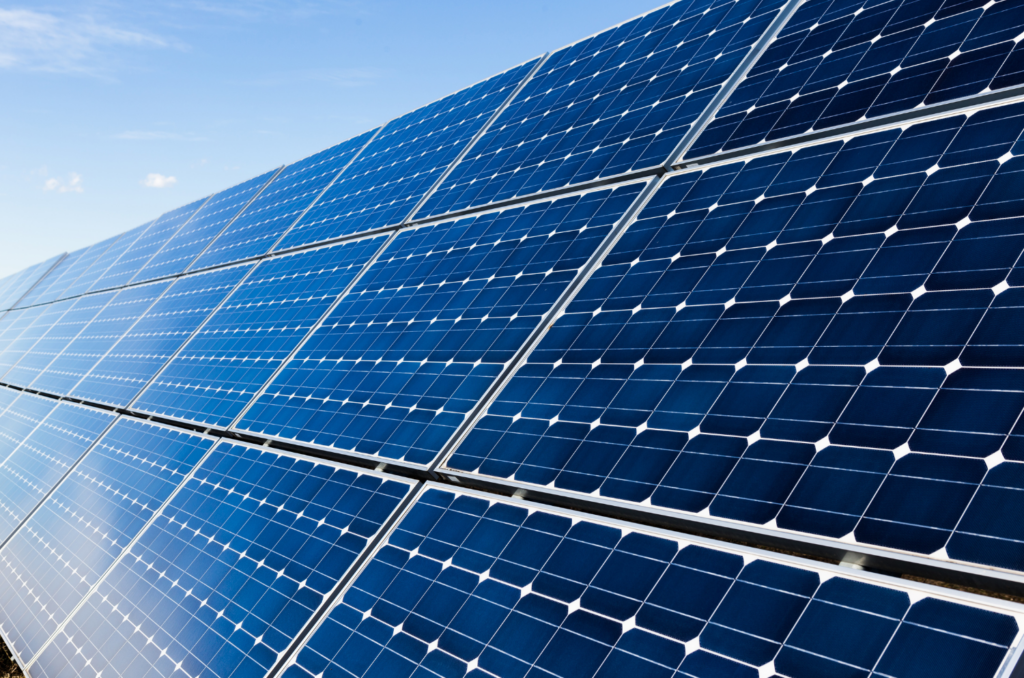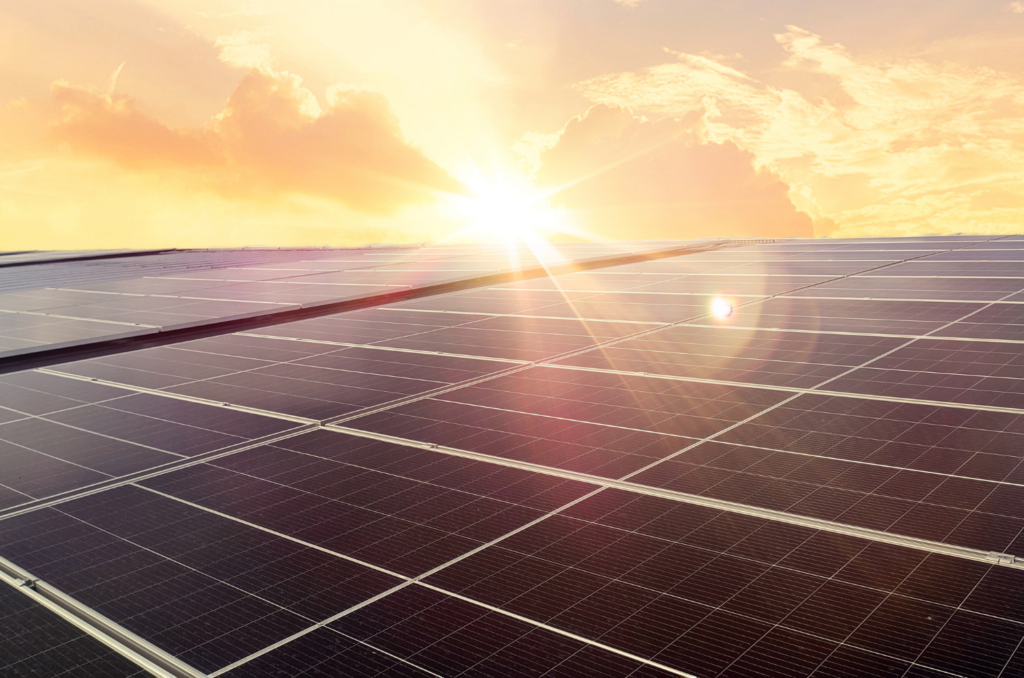Nowadays, solar energy presents itself as one of the most promising solutions for generating sustainable and environmentally friendly electricity. With the growing demand for clean technologies, the market offers a variety of panel photovoltaic, each with its own characteristics and benefits. In this article, we will explain the different types of panel photovoltaic available.

Types of panel photovoltaic
1. Monocrystalline solar module
Monocrystalline solar module are known for their high efficiency and durability. They are made from a single crystal of silicon, giving them a uniform structure and superior performance in converting sunlight into electricity. Their deep black color and sleek appearance make them easily identifiable. These panels are ideal for installations with limited space, as they require less area to generate a significant amount of energy.
Advantages:
High efficiency (15-20%).
Longer lifespan and better performance in low-light conditions.
Attractive aesthetic with a uniform color.
Disadvantages:
Higher price compared to other types.
Sensitivity to shading, which can affect performance in installations with obstructions.
2. Polycrystalline solar module
Polycrystalline panel photovoltaic are made by melting multiple crystals of silicon together. Their bluish and less uniform appearance distinguishes them from monocrystalline panels. Although they have slightly lower efficiency, they tend to be more affordable and are suitable for installations without space constraints.

Advantages:
Lower costs than monocrystalline panels.
Good performance under normal sunlight conditions.
Disadvantages:
Lower efficiency (13-16%).
Less effective in low-light conditions or cloudy days.
3. Thin-film solar module
Thin-film panel photovoltaic are made by depositing semiconductor materials in a thin layer onto a substrate. They are known for their flexibility and lightness, allowing their use on curved surfaces and special applications. However, they have lower efficiency and require more space to produce the same amount of energy as silicon panels.
Advantages:
Flexibility in design and installation.
Better performance in high-temperature conditions.
Disadvantages:
Lower efficiency (10-12%).
Require more space to match the generation capacity of other types of panels.
4. Perovskite panel photovoltaic
Perovskite solar module is an emerging technology that uses a material with a special crystalline structure called perovskite. These panels have a high potential for efficiency and lower manufacturing costs compared to traditional panels. Although they are still in development, they hold significant promise for the future of solar energy.
Advantages:
Potential for high efficiency.
Reduced manufacturing costs.
Disadvantages:
Technology still under development and not widely available.
Durability and long-term stability issues.
At Solum, we take pride in offering panel photovoltaic that not only meet the highest standards of efficiency and durability but also exceed market expectations. Our solar module combines advanced technology with optimized design to deliver superior performance compared to traditional panels.

Superior efficiency: Our panels are designed to maximize the conversion of sunlight into electricity, providing high efficiency that competes with the best monocrystalline panels on the market. This translates into higher energy production in a smaller space.
Durability and resilience: Made with high-quality materials, Solum’s panel photovoltaic are designed to withstand adverse weather conditions and ensure reliable performance throughout their lifespan. Our technology ensures superior resistance to degradation and corrosion.
Efficient installation: The innovative design of our panels allows for faster and easier installation, reducing both installation costs and the time required. This facilitates a smoother integration into any type of project.
Choosing the right panel photovoltaic is essential to maximize the performance of your installation and achieve the best return on investment. Each type of panel photovoltaic has its advantages and disadvantages, and the right choice will depend on your specific needs and installation conditions.
At Solum, we are committed to excellence in solar technology, offering panel photovoltaic that not only meet the highest standards but also exceed market expectations. When considering our panel photovoltaic, you can be confident that you are investing in an efficient, durable, and reliable solution that will optimize your solar energy generation.
For more information on our panel photovoltaic and how they can benefit your project, visit our website and discover how Solum can help you achieve your energy goals sustainably.








